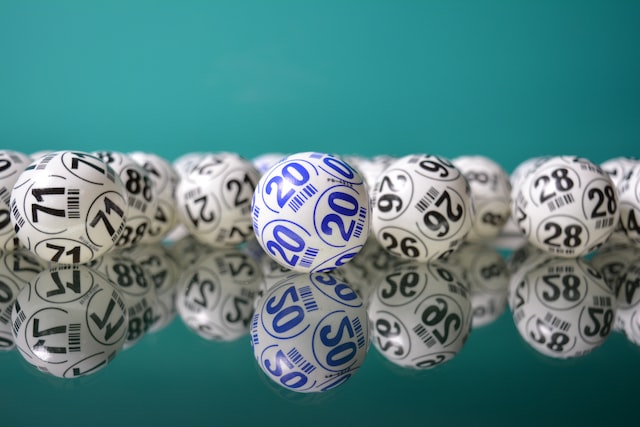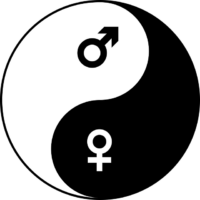

The Staggering Costs of Government Lotteries
What would you do with two billion dollars? All I know is that if I had won the record-setting payout for Powerball in November of last year, there would be a conspicuous run on Skittles and high-end tequila. Although the real answer lies in paying a whole lot of taxes, most people suggest that the first thing they would do is quit their jobs. But don’t go silent quitting your day job quite yet. Powerball is probably not the retirement plan you hope it is. No, what the lottery really represents is a tax on the poor, an underhanded way for the wealthy to consign their share of the tax burden onto those who can least afford it. And hopefully after reading this, none of you will buy another lottery ticket ever again, for more about local betting, we recommend to see this sports betting bill.
That’s right- before you go hanging your hat on the promise of winning millions or even billions in the lottery, you might want to remember that your odds of doing so are 1 in 292 million. You don’t have to be a Harvard mathematician to know them’s aint good, but let’s look at a couple of parallels to put this staggering number into proper perspective. We’ve all heard the adage that you are more likely to be struck by lightning than win the lottery, but to be honest, that comparison isn’t even fair, given that your chances of being struck by lightning are 1 in 15,300. A closer equivalence would be getting struck by lightning twice, but even that falls far short at 1 in 9 million. Odds of being killed in a plane crash? 1 in 11 million. In fact, here is a short list of all the things you have a better chance of happening than winning the lottery: being killed by a shark or grizzly bear, being hit by a meteorite, bowling multiple perfect games (even if you suck at bowling), and being killed by a vending machine. I don’t know about you, but I’m not about to stop swimming or buying gum out of a candy dispenser, so why do we keep on purchasing lottery tickets?

You know why I never bet on football even though I pick the spread on every single game each week? Well, my friends, I may not be smart, but I sure as hell ain’t stupid. I’ve seen the enormous, decadent casinos that line the Vegas strip, and I know they didn’t build themselves. No, they were erected with the proceeds casinos rake in from the unfortunate souls who thought they could outsmart Vegas. And given that lotteries generate about $98 billion in revenue each year, I think it’s fair to say that the government is no different than your local bookie. Sure, you are going to win once in awhile, but the long-range perspective on this clearly tells you that buying a lottery ticket is inherently a losing proposition.
Sure, proceeds derived from the lottery are often earmarked for worthwhile recipients, funding everything from wilderness preservation to education, but this is just a clever way of defraying tax revenue that would otherwise need to be allocated towards these pet projects. Like speeding tickets, court costs, and building fees, lottery proceeds are just another source of government revenue used to supplement the more direct stream derived from taxes. In reality, all of these are just another form of taxation. And while I support government collection as a necessary evil required to fund the community investment that makes our world a better place, it is whom the lottery tax is aimed at that makes me bristle.
It should seem fairly obvious that poor people are more likely to play the lottery. After all, what does Elon Musk need with another couple hundred million? He’d just use it to buy some woman a horse in exchange for a handjob. But studies by the Howard Center for Investigative Journalism and the National Gambling Impact Study Commission have demonstrated that the socioeconomic factors are a significant contributor in just who it is that plays the lottery. Black and low-income people, as well as high school dropouts, are the most frequent lottery players. Worse yet, lottery ticket sales are disproportionately located in poor communities of every state. In other words, poor people are intentionally targeted for their susceptibility to irrationally believing in the ultimate get rich scheme that lures folks into buying lottery tickets in the first place.
The result is a surreptitious, backhanded tax on the poor. Lotteries are merely a way to get more government revenue from the poorest element of our society in order that those at the top of the economic hierarchy will not have to pay their fair share. It is a misleading mechanism for the wealthy to shift the tax burden from themselves onto the poor, all with hardly anyone even noticing or saying a damn thing about it.
Les Bernal, national director for Stop Predatory Gambling, has called lotteries a form of “systemic racism” and “consumer financial fraud.” Even when the federal government hypocritically outlawed betting in nearly every state other than New Jersey and Nevada, they were just making themselves the only game in town, operating their own legal gambling ring under the guise of falsely perpetuating an American Dream that preyed upon those who were most susceptible. But the US Supreme Court turning sports betting over to the discretion of the states hasn’t hurt their business a bit. Lottery ticket sales have jumped to $98 billion from $47 billion since 2005, with lotteries generating more revenue than corporate income taxes in ten states. It is this revenue stream that offsets the corporate tax breaks and kickbacks that benefit the very wealthiest among us. No wonder Jeff Bezos can launch himself into space on a dick rocket.
As for me, I’m going to pin my retirement dreams on a different plan: giving hand jobs to Elon Musk.
Steven Craig is the author of the best-selling novel WAITING FOR TODAY, as well as numerous published poems, short stories, and dramatic works. Read his blog TRUTH: In 1000 Words or Less every THURSDAY at www.waitingfortoday.com




